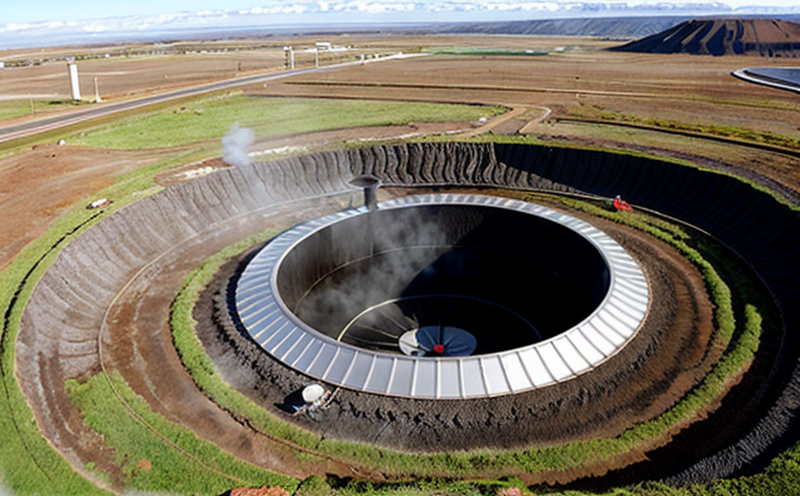ASTM D1384 Corrosion Testing of Heat Transfer Fluids
The ASTM D1384 corrosion testing method is a critical tool in the energy and renewable energy sector, particularly for geothermal systems. This test evaluates the resistance of heat transfer fluids (HTFs) to corrosive environments encountered within geothermal power plants. HTFs are essential components that facilitate the efficient operation of these systems by transferring heat from the geothermal reservoirs to the surface-based equipment.
Geothermal energy is a renewable resource with significant potential for sustainable electricity generation, but its use requires robust materials and fluids capable of withstanding extreme conditions. The corrosive nature of geothermal brines presents one of the most formidable challenges in this field. Over time, exposure to these harsh environments can lead to degradation or failure of HTFs, compromising the overall performance and longevity of geothermal systems.
The ASTM D1384 method specifically targets the evaluation of HTF resistance against localized corrosion caused by high-temperature, high-pressure conditions present in geothermal wells. This testing ensures that the selected fluids can withstand these severe operating environments without compromising the integrity or efficiency of the system. The test involves exposing HTFs to controlled corrosive conditions and assessing their ability to resist pitting and crevice corrosion.
Understanding the results from ASTM D1384 is crucial for quality managers, compliance officers, R&D engineers, and procurement teams involved in geothermal projects. These professionals can use this information to select appropriate HTFs that meet stringent performance criteria while minimizing operational risks associated with equipment degradation.
Benefits
- Enhanced Reliability: Ensures consistent system performance by preventing premature failure of components due to corrosion.
- Informed Decision-Making: Provides data necessary for selecting the most suitable HTF based on real-world conditions.
- Cost Efficiency: Reduces maintenance costs and downtime associated with equipment failures caused by improper fluid selection.
- Environmental Compliance: Helps in meeting regulatory requirements related to material safety and environmental impact assessment.
Eurolab Advantages
At Eurolab, we offer comprehensive ASTM D1384 testing services tailored specifically for the energy and renewable energy sectors. Our state-of-the-art facilities and experienced staff ensure accurate and reliable results that are essential for your project's success.
- Expertise: Highly qualified personnel with extensive experience in geothermal and renewable energy systems.
- Accreditation: ISO/IEC 17025 accreditation ensuring the highest standards of testing.
- Technology: Utilization of advanced equipment to simulate real-world conditions accurately.
- Support: Ongoing support from our technical experts throughout your project lifecycle.
Use Cases and Application Examples
| Scenario | Description | ASTM D1384 Relevance |
|---|---|---|
| New Geothermal Plant Commissioning | Evaluating HTFs for new installations to ensure they can handle the expected operating conditions. | The test helps in selecting fluids that are resistant to corrosion, ensuring long-term reliability of the plant. |
| Existing System Upgrades | Determining if current HTFs need replacement due to signs of degradation from prolonged use and exposure. | Testing provides insights into the remaining lifespan of existing fluids and whether they should be replaced or continue in service. |
| R&D for New Fluid Formulations | Developing novel HTF formulations that are more resistant to corrosive environments. | The test can validate the effectiveness of new fluid designs before full-scale implementation. |
| Supplier Evaluation | Selecting reliable suppliers of HTFs for use in geothermal systems. | Evaluating supplier claims about their product's corrosion resistance through independent testing. |





